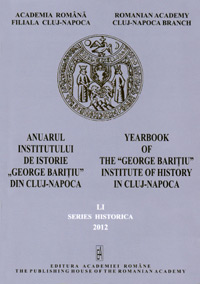Prerogativle juridice ale judelui sătesc în legislaţia secolului al XVII-lea în Transilvania
The legal powers of the county village in the Seventeenth century legislation in Transylvania
Author(s): Livia MaginaSubject(s): History
Published by: Editura Academiei Române
Keywords: iudex pagi; legislation; judicial powers; Principality of Transylvania in XVIIth century
Summary/Abstract: The restoring of an institution with a long period of existence as that of iudex pagi assumes to analyze and expose the institution functions as its are reveal in the legislation of that period. Out of the many functions that the judge was in charge of for village (economic, religious, etc.) the legal attributions underlying the institutional body. The main corpuses of this period, Approbatae Constitutiones, Compilatae Constitutiones create the legislative framework to continue the existence and functioning of this institution, but also the corpuses of the XVIth century are very important. Among the legal duties is catching criminals, keeping animals lost, presentation in court as a witness in a lot of cases, from issues of moral behaviour to the drawings of the borders, the cases between the villagers or between them and the master or between locals and foreigners. A special mention is that the judge has a form of payment according to the value of the cases judged in the village court. Considering this attribution and the other aspects of the functioning of institution, is emerging the importance of iudex pagi in his community.
Journal: Anuarul Institutului de Istorie »George Bariţiu« - Series HISTORICA
- Issue Year: LI/2012
- Issue No: 51
- Page Range: 57-67
- Page Count: 11
- Language: Romanian

